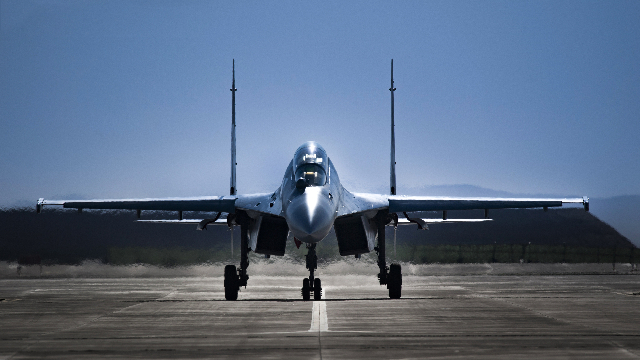By Li Hai
The US recently hosted the Project Convergence Capstone 4 (PC-C4) joint exercises, during which the US, the UK and Australia (the AUKUS) tested AI-supported UAVs and other autonomous combat devices, marking a significant step forward in the alliance's integration of their AI defense systems.
This was the first time that autonomous and AI sensing systems were used in a real-time military environment. UAVs from the three countries operated in the same airspace, through which the operators were able to locate, paralyze and destroy ground targets.
According to a statement from the U.S. DoD, the testing was aimed to minimize the time needed to identify enemy targets. Once the technology is proven and integrated into national platforms, the new sensing systems will be able to produce more reliable data that will help the commanders make the best decisions, and enable the military to cope with the threats posed by kinetic weapons more quickly and efficiently and organize joint military operations involving multiple services and nations.
The AI-based combat devices recently tested by AUKUS do reflect the future trend on the battlefield, but they come with obvious ethical issues. The AI technology is too complicated for engineers to precisely anticipate the system decisions. If unmanned weapon systems are completely autonomous, anything out of expectation would lead to catastrophic consequences.
The trilateral joint statement by the US, the UK and Australia in September 2021 said that the US and the UK would together sell sensitive nuclear-powered assault submarines to Australia, bringing the AUKUS into being. The recent test once again indicated, in more than one way, what the trilateral military bloc really is.
First of all, the AUKUS is a close political, military and technological alliance of the three countries. The test can be seen as an expansion of the member states' scope of cooperation from nuclear submarines to AI and UAVs. The American website, Defense News, said the nuclear submarine is the cornerstone of AUKUS, and the three countries' scope of cooperation would gradually expand to other domains such as AI, robotics, supercomputing, chips, and intelligence sharing.
Second, AUKUS' war-mongering nature is laid bare. Ever since its formation, the US and the UK have felt no qualms about selling nuclear submarines and weapon-grade nuclear materials to Australia, a non-nuclear state, in stark violation of the Treaty on the Non-Proliferation of Nuclear Weapons (NPT). Now the alliance is accelerating the military application of AI and minced no words about its intention of coping with the so-called major-country competition, behind which is its true purpose of starting the "new Cold War" against the trend of the times, which will gravely sabotage regional peace and stability.
Third, the AUKUS is a tightly bound alliance under America's lead, unlike NATO. The US has clear-cut standards for AUKUS' founding members and potential new entrants – allies of the highest level with great economic, military, and technological capabilities, strong strategic aggressiveness, and the willingness to follow the US in confronting its major rivals. Washington sees the other AUKUS members as its "iron-clad followers", and the three of them often jointly develop and share sensitive, sophisticated technologies. This will aggravate bloc confrontation, increase the risk of weapon proliferation, and destroy peace and stability in the Asia Pacific.









